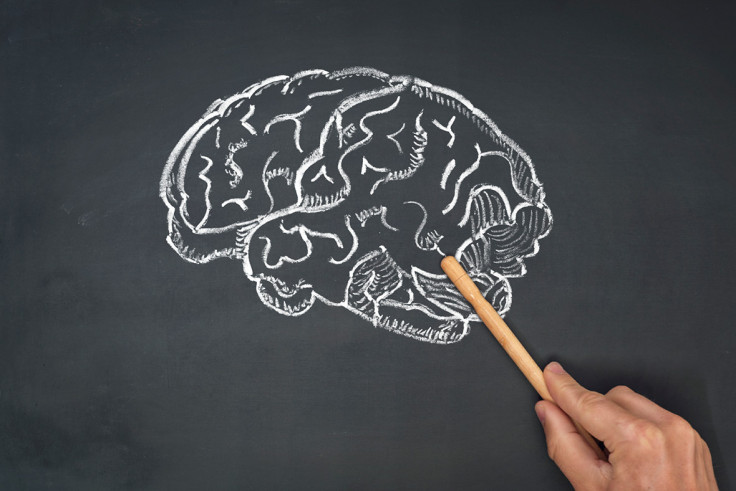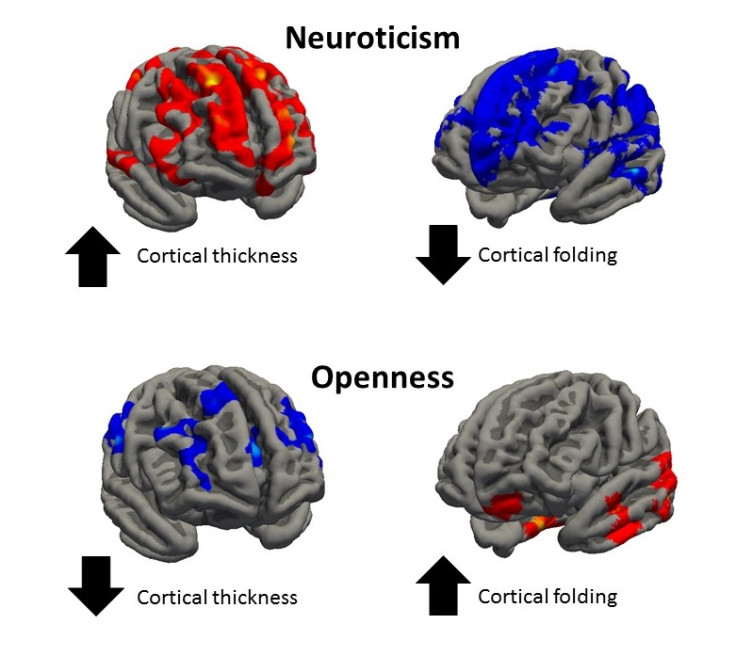The 'Big Five' personality traits have been linked to the wrinkles in your brain
Understanding how neurotic people's brains work could lead to better treatments for anxiety in the future.

The first large-scale study has found a link between the 'Big Five' personality traits – neuroticism, extraversion, openness, agreeableness and conscientiousness – and the fine-scale structure of the brain.
The folded outer layer of the brain – the cortex – relates to different personality traits depending on how thick and folded or wrinkly it is, and its overall area in particular regions of the brain, according to the study published in the journal Social Cognitive and Affective Neuroscience.
Several of the personality traits were linked to varying degrees of wrinkliness and thickness in the prefrontal cortex, which is the part of the brain that sits right behind the forehead.
People who were very neurotic, for example, had a thicker and less wrinkly cortex in parts of the prefrontal region. People who are very open, however, showed a thinner and wrinklier cortex in another part of the prefrontal region. Very conscientious people had a thicker and less wrinkly cortex across the prefrontal regions.
Very extroverted people had a thicker cortex in the precuneus area, towards the back of the brain, and smaller overall area in the superior temporal cortex, which sits in a lobe to the side of the brain.
People who were very agreeable had a thinner prefrontal cortex and a smaller overall area in the fusiform gyrus region, which sits towards the base of the brain.
The nature of the cortex varies a lot between people, making it crucial to have a large sample size to see the overall trend of how the properties of the cortex relate to personality types. The study is the first to tease apart the different minuscule properties of the cortex in a large sample size – of 507 healthy people between the ages of 22 and 36 – as part of the Human Connectome Project, based in the US.

As well as varying between personality types, previous studies have shown that the cortex changes throughout life. It tends to become thinner and more folded as we age.
"It's a bit like stretching a rubber material. If you stretch it, it becomes thinner, the area increases, and if you want to fit it in a fixed space like the skull, you have to fold it," study author Luca Passamonti of the University of Cambridge told IBTimes UK.
Passamonti explains this is not only a developmental pattern, it's also an evolutionary pattern, "humans have a highly folded and wrinkly cortex compared with most animals".
"So it is interesting to find a strong relationship between these measures and human personality traits," he continues.
Understanding how these brain structures relate to personality in healthy people is the first step to seeing how they differ in people who have mental health problems such as anxiety or depression.
"People with mental disorders tend to have an extreme brain. Some of these metrics are altered in people with anxiety and depressive disorders," Passamonti added. "In extreme people these differences are likely to be more dramatic."
© Copyright IBTimes 2025. All rights reserved.





















